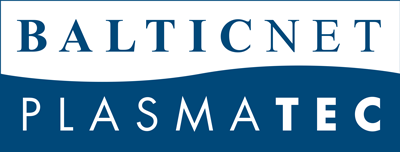Leibniz Institute for Plasma Science and Technology
Address
Felix-Hausdorff-Str. 2
17489 Greifswald
Germany
Contact
Contact person: Prof. Dr Klaus-Dieter Weltmann
Phone: +49 3834 5543 00
Fax: +49 3834 5543 01
Website

About us
The Leibniz Institute for Plasma Science and Technology e.V. (INP) is one of the leading research institutes in the area of physical plasma, its basics and applications. It is the largest non-university institute in Europe, in the field of low temperature plasmas, employing about 200 scientists, engineers and other specialised personnel. In addition to application-oriented research, the INP promotes the development of plasma-assisted processes and products.
The institute undertakes research and development, from idea to prototype. The thematic focus bases on the needs of the market, allowing the INP to provide customer-specific solutions in the areas of plasma-derived technologies, as well as services, such as feasibility studies and consultancy. At present, plasmas for materials and energy, environment and health, are the focus of interest. Innovative product ideas, as a result of the research of the INP, are being explored together with partners from industry or transferred into marketable products and applications by the spin-offs of the institute.
In collaboration with universities, research facilities and industry, the INP actively promotes the training and continuous education of scientific and technical junior staff in the field of low temperature plasma physics. The institute is a registered non-profit organisation and, since its foundation, a member of the Leibniz Association.
Research
The Leibniz Institute for Plasma Science and Technology (INP Greifswald) is the largest non-university institute in the area of low temperature plasmas in Europe, including their basic research and technical applications.
The research is organized in the two research divisions Plasmas for
- Materials and Energy (Head: Prof. Dirk Uhrlandt) and
- Environment and Health (Head: Prof. Klaus-Dieter Weltmann)
each covering four research programs at present.
Research Division Plasmas for Materials and Energy
The research division bundles issues of plasma applications in the areas of energy and production technology. This currently comprises application areas in the generation of functional coatings, thin layers and catalytically active materials by means of plasma processes, the plasma chemical synthesis as well as topics of the power and process engineering. Topics in the frame of the energy transition like, on one hand, new material components for hydrogen synthesis and storage, photovoltaics and battery techniques and, on the other hand, the increase of capacity and reliability of components of the energy distribution system are considered in particular.
Fundamental studies currently concern the surface modification by means of non-thermal plasmas at atmospheric pressure as well as the interaction of thermal plasmas with electrodes and walls. A unique aspect of the division’s strategy is the systematic linking of sophisticated scientific plasma modelling with spatially and temporally high resolution diagnostic methods for application-relevant issues in the aforementioned topics by using the most modern laboratories for experiments.
Research Division Plasmas for Environment and Health
The research area, Plasmas for Environment and Health focuses on interdisciplinary topics and uses the synergies of its three research priorities: Bioactive surfaces, plasma medicine and decontamination. The atmospheric pressure plasma sources, such as dielectric barrier discharges, jet plasmas, microwave plasmas, and microplasmas that can be extensively investigated experimentally constitute an essential connecting link in this regard. The close cooperation of physicists, biologists, chemists, pharmacists, physicians, and engineers with highly specialized technicians, as well as laboratory specialists is unique worldwide.
Plasma medicine focuses on basic research of the mechanisms of interactions of physical plasmas with living cells and tissues. In addition, research and introduction of new plasma-based methods in medicine are driven forward. In the research focus area Bioactive Surfaces, the emphasis is on custom-tailored surfaces for applications in the life sciences. An additional emphasis is plasma-based decontamination; in this focus area research is mainly directed towards exhaust air scrubbing, disinfection of food products and water disinfection
Industry Services
From the Research to the Application, from Idea to Product – Cooperation and Technology Transfer at INP
The successful regional, national and worldwide cooperation with companies and institutions of all sizes and sectors is particularly important for INP. The employees of the institute work in bilateral projects or research clusters together with companies, universities and scientific institutions. The institute raises a considerable part of its third-party funds through cooperation with industry. In recent years third-party funds of about 4.4 million euro have been raised solely through cooperation with industrial companies.
The close networking with a multitude of regional and supra-regional institutions from science and industry as well as with representatives of chambers and associations contributes significantly to the success and strengthening of the technology transfer of INP. In order to supplement the research portfolio of the institute towards the market, neoplas GmbH was established as technology transfer centre in 2005.


